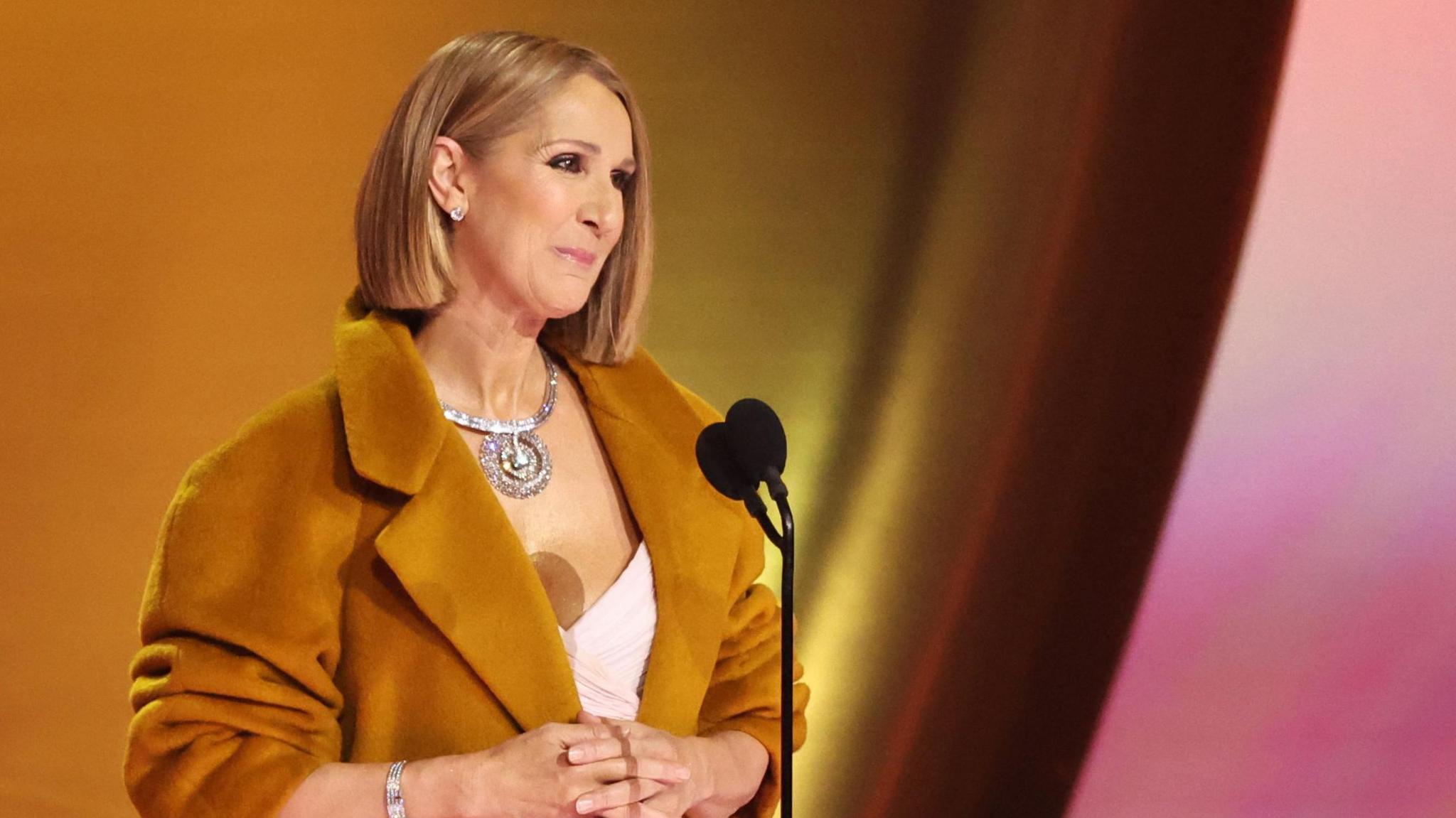Celine Dion 'does not endorse' Trump use of Titanic song

- Published
Celine Dion's team has criticised former US President Donald Trump for the "unauthorised" use of a clip of one of her hits at a presidential campaign event.
The song My Heart Will Go On - which featured in a 1997 film about the doomed ship Titanic - was played to supporters before Trump appeared on stage at a rally in Bozeman, Montana, on Friday.
In a statement released on X, Dion's team said she did not "endorse" the use of the song, adding: "And really, that song?"
Artists and bands including Neil Young, Queen and the Rolling Stones have previously complained about Mr Trump using their songs at campaign rallies.
The statement said: "Today, Celine Dion's management team and her record label, Sony Music Entertainment Canada Inc, became aware of the unauthorised usage of the video, recording, musical performance, and likeness of Celine Dion singing My Heart Will Go On at a Donald Trump / JD Vance campaign rally in Montana.
"In no way is this use authorised, and Celine Dion does not endorse this or any similar use.
"...And really, that song?"
The Trump campaign has not responded to the statement.
My Heart Will Go On is one of five-time Grammy winner Dion's best-known songs.
The Oscar-winning ballad was on the soundtrack of the 1997 blockbuster Titanic, starring Leonardo DiCaprio and Kate Winslet as two lovers who meet on the doomed ship's maiden voyage in 1912.
Dion made a triumphant return to live singing last month at the opening ceremony of the Paris Olympics.
It was her first performance since revealing she had been diagnosed with Stiff Person Syndrome (SPS) in 2022.
SPS is a rare neurological disorder that causes muscles to spasm and can be debilitating.
The singer discussed her struggles with SPS in a film called I Am: Celine Dion, which Amazon Prime Video said last month had become its most successful documentary ever.
The Canadian artist Neil Young has also previously objected to Trump using his songs, and in 2020 the Rolling Stones threatened him with legal action after the song You Can't Always Get What You Want was played at a political rally in Tulsa, Oklahoma.
Ozzy and Sharon Osbourne sent a notice to Trump banning him from using Black Sabbath music in campaign videos in 2019.
The Republican Party's presidential candidate is not the only politician to receive criticism from artists over the use of songs during campaign rallies.
Last year, rapper Eminem asked aspiring Republican presidential candidate Vivek Ramaswamy to stop using his songs.
Bruce Springsteen castigated President Reagan for planning to use Born in the USA for his 1984 election campaign.
Fatboy Slim furiously denounced the UK Labour Party for using his hit Right Here, Right Now at their 2004 conference - the year after the Iraq War.
Legally, US politicians do not always need direct permission from artists.
Their campaigns can buy licensing packages from music rights organisations giving them legal access to more than 20 million songs.
However, artists have the right to remove their music from that list.